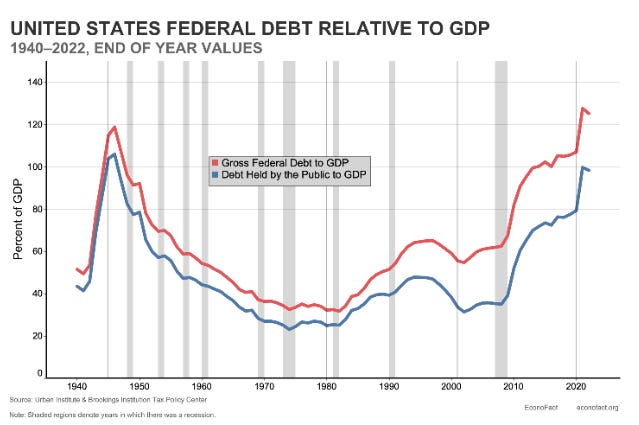America Needs Livable Wages
The federal minimum wage in 1968 was $1.60. That may not sound like much, but adjusted for inflation, it equals ~$14.50 today. However, the federal minimum wage is currently half that amount, at just $7.25. In 2024, a single adult needed to earn $15 an hour to cover basic living expenses in low-cost areas. The majority of the US requires even higher wages.
This means an adult working two full-time jobs, paying the federal minimum wage, for 80 hours a week can barely survive. Workers would have been far better off if Congress had set the minimum wage to automatically increase with inflation at its peak in 1968.
Congress never ties the minimum wage to inflation because corporations and the wealthiest Americans who pour billions into political campaigns do not want them to. Instead, those forces have been working for decades to create a second Gilded Age, an age where the elites have all of the money, power, and influence while regular Americans suffer.
Anyone who works a full-time minimum-wage job should be able to feed and house themselves. A middle-class job should allow someone to support a family, own a home, and take a modest vacation once a year. That is the simple premise of fair pay for honest work, and it is what America used to believe in.
Then came lobbyists, Citizens United, and Super PACs. At the beginning of the 1970s, there were almost no corporate lobbyists. In 1971, Lewis Powell wrote a memo for the Chamber of Commerce titled “Attack on American Free Enterprise.” In it, Powell wrote about how businesses needed to fight against society and laid out a plan to shift public opinion and government policy to their favor through corporate-owned media, lobbyists, and the legal system. The overall goal was to revert America to when corporations had a massive influence over all areas of the country, particularly the government, and controlled the wealth.
That memo kicked off a movement that has continued ever since. Reagan became president in 1981 and was part of the new pro-corporate Republican party. He pushed for lower taxes for corporations and the wealthy as part of his trickle-down economic theory. The GOP has continued to follow that course.
The top corporate tax rate was over 50% in 1968; it is 21% today, and that is before all the loopholes and tax breaks that allow massive corporations to pay far less. The top individual income tax rate was 70% in 1968; it is 37% today, but the wealthiest Americans pay an effective tax rate of ~8% due to write-offs and differences in taxes for Capital gains and investments, where the very wealthy earn most of their income.
America’s national debt was $348 billion in 1968, or 39% of GDP. Today, it is 123% of GDP, or $36 trillion.
Unions are weaker today, and corporations are stronger. The middle class is falling far behind while the rich get richer. 13,000 lobbyists in DC are making this happen. Here are the top 12 lobbying groups for 2024 from OpenSecrets.org:
Three key factors determine how workers and voters can fight corporate greed, regain livable wages, and influence politics.
The first factor is correcting misinformation. Corporations and lobbyists are skilled in creating talking points to mislead the public into voting against their best interests. One of the key arguments against raising the minimum wage is that it would cause inflation that would negate the wage increases, resulting in higher prices for everyone. You can look at the economic data from previous federal, state, and local minimum wage increases to see that it isn’t true. You can also read numerous studies that agree that raising the minimum wage has a negligible effect on inflation. Here is an excerpt from the Economic Policy Institute:
the move to $15 would create a one-time step-increase in the overall price level of less than 0.5%. Spread over five years, this implies an average boost to inflation of less than 0.1% per year, after which it would fade to near-zero.
The second factor is ensuring voters know why raising the minimum wage benefits them, even if they don’t make the minimum wage. Raising the minimum wage also increases middle-class salaries, reduces reliance on federal aid, increases tax revenue, reduces the deficit, and even strengthens social security by increasing the amount lower-wage workers pay into the system due to their higher earnings.
The third factor is to counter corporate lobbying through political engagement. If voters agree to support politicians who reject corporate donations, then corporations lose their influence over the system. Small donor donations add up quickly when millions of Americans actively participate in politics.
No matter where campaign donations come from, politicians need votes to get into or stay in office. Vote against candidates who refuse to raise the minimum wage, try to lower corporate and wealthy tax rates, and block efforts for universal healthcare. Ninety million Americans didn’t vote in the last election, more than those who voted for either presidential candidate. Reaching those voters and showing them how much their vote matters can drastically improve the state of our nation.
Corporations responded to a call to arms in the 1970s. They organized, worked together, and changed the system to their benefit. It is time for working-class and middle-class Americans to do the same. We must end this new gilded age and usher in an age of progress and prosperity for the American worker. Together, anything is possible.
https://scholarlycommons.law.wlu.edu/cgi/viewcontent.cgi?article=1000&context=powellmemo
https://www.nelp.org/app/uploads/2017/05/workers-in-all-50-states-will-need-15-by-2024.pdf
https://www.americanprogress.org/article/forbes-400-pay-lower-tax-rates-many-ordinary-americans/
Redirect Your Anger
Americans are frustrated at the difficulty of making ends meet. Campaign promises about tackling inflation, lowering prices, mass deporting migrants, and using tariffs to solve our problems likely won one of the closest presidential elections in US history.






